Kurdish PKK Fighters Destroy Weapons At Key Ceremony
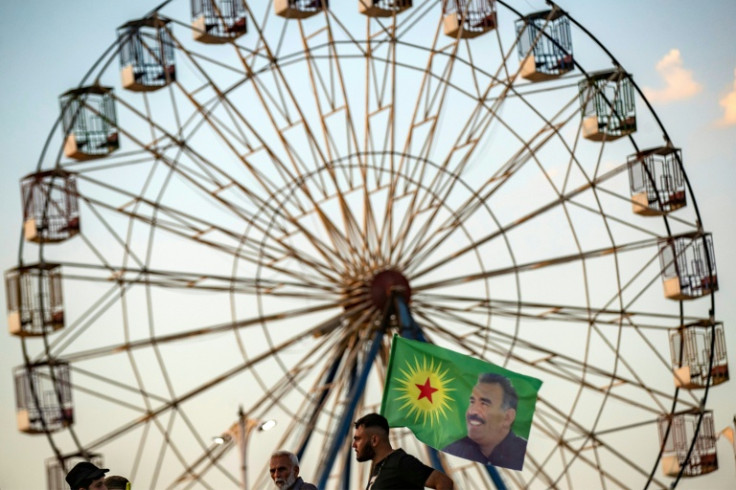
Thirty PKK fighters destroyed their weapons at a symbolic ceremony in Iraqi Kurdistan Friday, two months after the Kurdish rebels ended their decades-long armed struggle against the Turkish state.
The ceremony marks a turning point in the transition of the Kurdistan Workers' Party (PKK) from armed insurgency to democratic politics, as part of a broader effort to draw a line under one of the region's longest-running conflicts.
Analysts say with the PKK weakened and the Kurdish public exhausted by decades of violence, Turkey's peace offer handed its jailed founder Abdullah Ocalan a chance to make the long-desired switch away from armed struggle.
The PKK's disarmament also frames President Recep Tayyip Erdogan as the Turkish leader who managed to draw a line under a bloody conflict that cost more than 40,000 lives and wrought havoc in Turkey and beyond.
Outside the ancient cave of Casene, a group of 30 PKK fighters, both men and women, gathered on a stage in khaki fatigues, their faces uncovered, in front of an audience of around 300 people, an AFP correspondent at the scene said.
One by one, they walked down to lay their weapons in a pit which was then set on fire. Most were rifles but there was one machinegun and one rocket-propelled grenade.
As they looked on, people in the crowd started cheering while others could be heard weeping.
"We voluntarily destroy our weapons as a step of goodwill," said a statement read by the PKK's top woman commander Bese Hozat.
"Given the rising fascist pressure... and current bloodbath in the Middle East, our people are more than ever in need of a peaceful, free, equal and democratic life.
"In such a context, we fully comprehend the... urgency of the step we have taken," she said.
After the ceremony, the fighters were to return to the mountains, a PKK commander said.
Ankara hailed the ceremony as an "irreversible turning point" on the road to peace.
"The laying down of arms by PKK militants in Sulaimaniyah -- a milestone of the third stage of the ongoing disarmament and decommissioning process -- marks a concrete and welcome step," a senior Turkish official said.
"We view this development as an irreversible turning point."
The ceremony followed months of indirect negotiations between Ocalan and Ankara that began in October with Erdogan's blessing, and were facilitated by Turkey's pro-Kurdish DEM party.
The PKK took up arms in 1984, beginning a string of bloody attacks on Turkish soil that sparked a conflict that cost more than 40,000 lives.
But more than four decades on, the PKK in May announced its dissolution, saying it would pursue a democratic struggle to defend the rights of the Kurdish minority in line with a historic call by Ocalan, who has been serving a life sentence in Turkey since 1999.
Tensions rose ahead of the ceremony as two drones were shot down overnight near Iraqi Kurdish peshmerga bases, one in Sulaimaniyah, and the other in Kirkuk, according to officials, who said no-one was hurt.
Throughout the morning, scores of cars could be seen pulling up to Casene cave, a symbolic location that once housed a Kurdish printing press, Firat news agency said.
Representatives of top officials in Iraqi Kurdistan were at the ceremony alongside Turkish intelligence officials, DEM lawmakers and journalists.
Earlier this week Ocalan said the disarmament process would be "implemented swiftly".
"I believe in the power of politics and social peace, not weapons. And I urge you to put this principle into practice," he said.
And Erdogan said peace efforts would gain momentum after the disarmament began.
"The process will gain a little more speed when the terrorist organisation starts to implement its decision to lay down arms," he said at the weekend.
In recent months, the PKK has taken several historic steps, starting with a ceasefire and culminating in its formal dissolution announced on May 12.
The shift followed a historic appeal at the end of February by Ocalan, who has spent the past 26 years in solitary confinement on Imrali prison island near Istanbul.
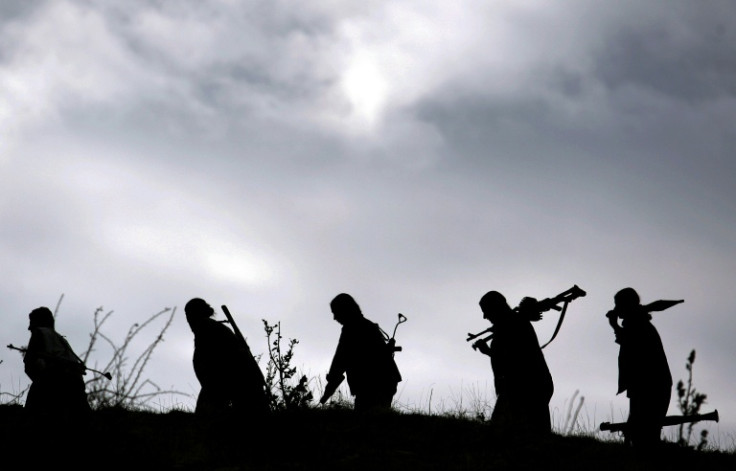
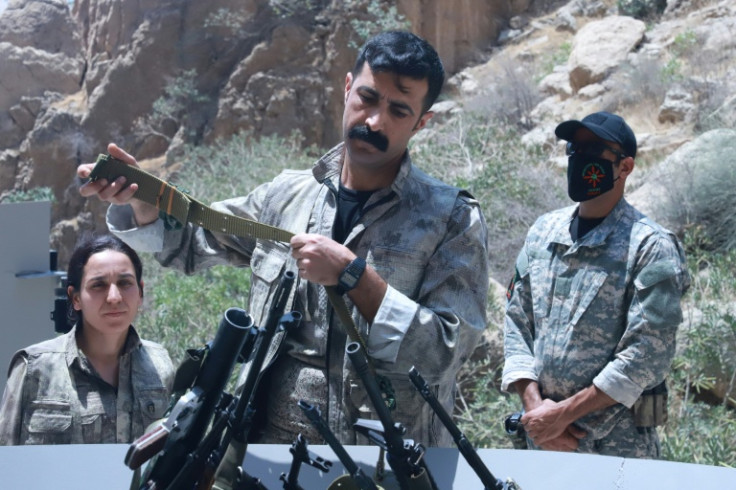
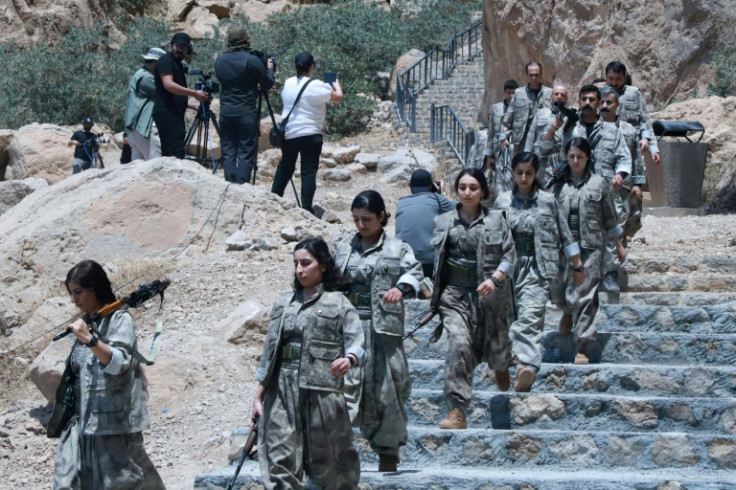
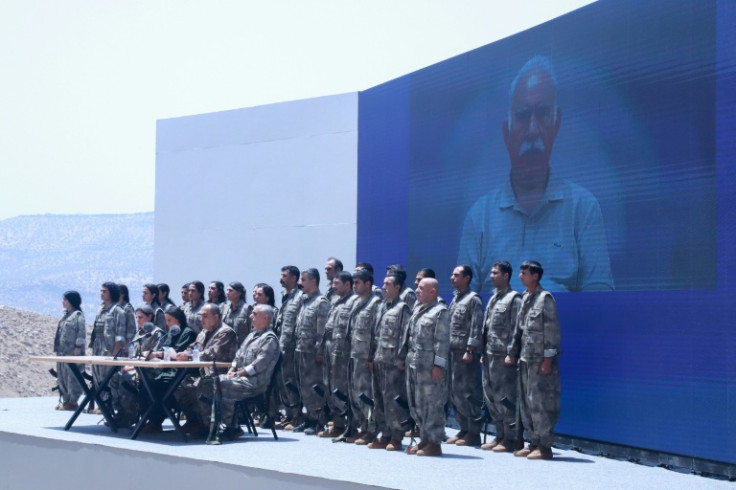
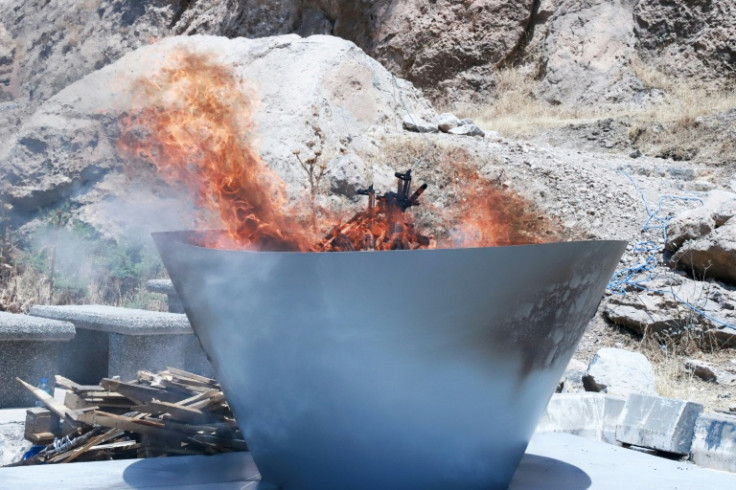
© Copyright AFP 2025. All rights reserved.




















